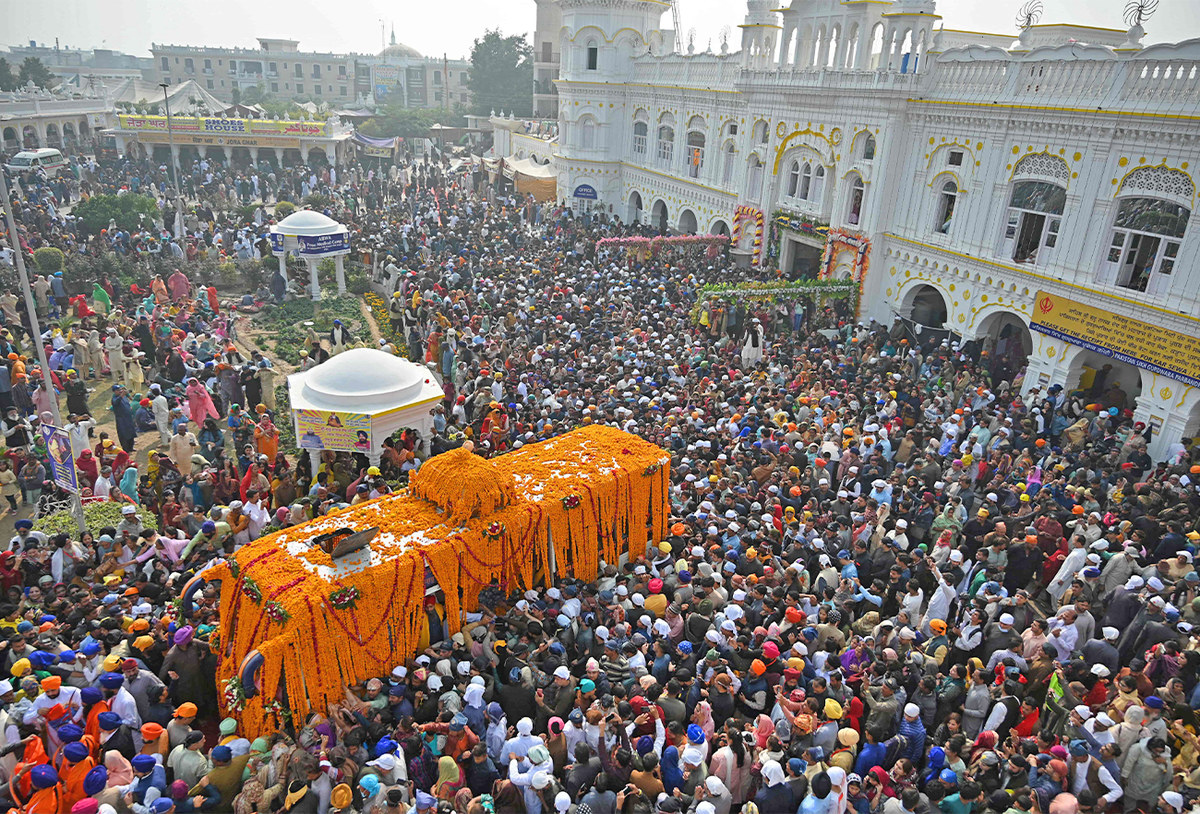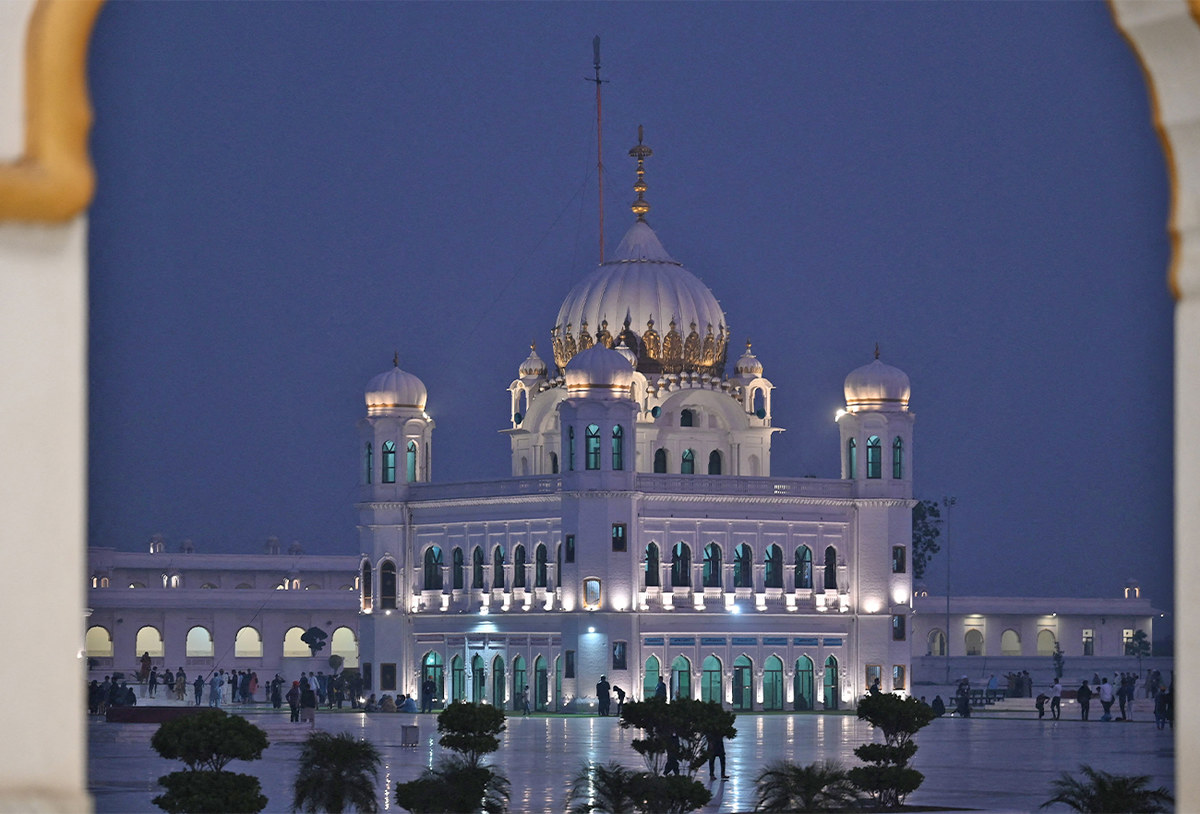ISLAMABAD: Prime Minister Imran Khan on Friday welcomed Sikh devotees to their religious sites in Pakistan, wishing them the 552nd birth anniversary of Baba Guru Nanak, the founder of Sikhism.
Thousands of Sikhs travel to Pakistan every year to participate in Guru Nanak’s birth anniversary celebrations. The main ceremony is held at Gurdwara Janamasthan in Nankana Sahib, the birthplace of Guru Nanak.
This year, over 8,000 Sikh pilgrims were expected to arrive in Pakistan from all over the world to participate in the celebrations marking the birth anniversary of Baba Guru Nanak.
“Wishing 552nd Guru Nanak Dev Ji Jayanti to all Sikhs around the world. On this auspicious occasion, we welcome thousands of Sikhs to visit their religious sites in Pakistan,” PM Khan said on Twitter.
“I reiterate my government’s commitment to continue facilitating them to perform their religious rituals.”

Sikh devotees gather around a bus carrying the Guru Granth Sahib (Sikh holy book) during a religious procession on the occasion of the birth anniversary of Guru Nanak Dev, the founder of Sikhism, in Nankana Sahib, Pakistan, on November 19, 2021. (AFP)
Khan’s statement came a day after Indian politicians, including the Indian Punjab chief minister Charanjit Singh Channi, visited Gurdwara Darbar Sahib in Kartarpur, Pakistan’s Geo News channel reported.
Indian Punjab deputy chief minister Sukhjinder Singh Randhawa was also expected to arrive in Pakistan through the Kartarpur corridor on Friday, Pakistani authorities said.
In 2019, the Pakistani government opened the Kartarpur corridor, connecting Gurdwara Darbar Sahib to the border with India and allowing Indian Sikhs to visit the site. The opening of the corridor marked the first time Indian Sikh pilgrims could enter Pakistan without a visa since 1947.

A general view shows the Gurdwara Darbar Sahib on the eve of the birth anniversary of Guru Nanak, founder of Sikhism, in Kartarpur near the India-Pakistan border on November 18, 2021. (AFP)
The corridor was closed in March 2020 following the coronavirus outbreak. While Pakistan says it had reopened the passage in June 2020, Indian authorities gave the green light for pilgrims to cross the border from Wednesday, a week after Islamabad urged New Delhi to reopen the corridor from its side and allow Sikhs to participate in Guru Nanak’s 552nd birth anniversary celebrations in Kartarpur.
Much of the Sikh heritage is located in Pakistan. When Pakistan was carved out of India at the end of British rule in 1947, Kartarpur ended up on the Pakistani side of the border, while most of the region’s Sikhs remained on the other side.
Gurdwara Darbar Sahib in Kartarpur is of particular importance to the Sikh community as it was built in tribute to Guru Nanak, who established the town of Kartarpur in 1515. It is also his final resting place.
















